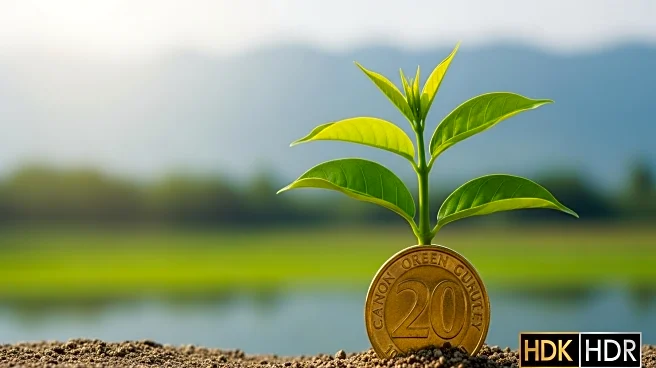What's Happening?
Climate finance refers to financial resources and instruments used to support action on climate change, including investments in mitigation and adaptation. Examples include grants, loans, sovereign green bonds, and carbon trading. The United Nations Development Programme (UNDP) is a major entity supporting countries in accessing and effectively using climate finance. The need for climate finance is critical due to the large-scale investments required to transition to a low-carbon global economy and to help societies build resilience against climate change impacts.
Why It's Important?
Climate finance is crucial for addressing climate change because it enables the transition to a low-carbon economy and supports resilience-building efforts. It helps vulnerable communities cope with climate change, particularly in regions facing both conflict and climate shocks. The funding gap remains significant, with current financial flows needing to increase at least threefold to meet the Paris Agreement targets. Climate finance also plays a role in incentivizing investment in renewable energy infrastructure and sustainable agriculture.
What's Next?
Countries are expected to continue efforts to pivot traditional development budgets to finance climate action, especially in adaptation. The UNDP and other entities will likely increase support for countries to access climate finance. The focus will be on enhancing resilience and adaptation efforts, with potential increases in funding from multilateral funds like the Green Climate Fund and the Global Environment Facility.
Beyond the Headlines
The ethical dimension of climate finance involves the obligation of richer nations to support poorer ones in their climate efforts. This support is essential for equitable climate action and for addressing the disproportionate impacts of climate change on vulnerable communities.









